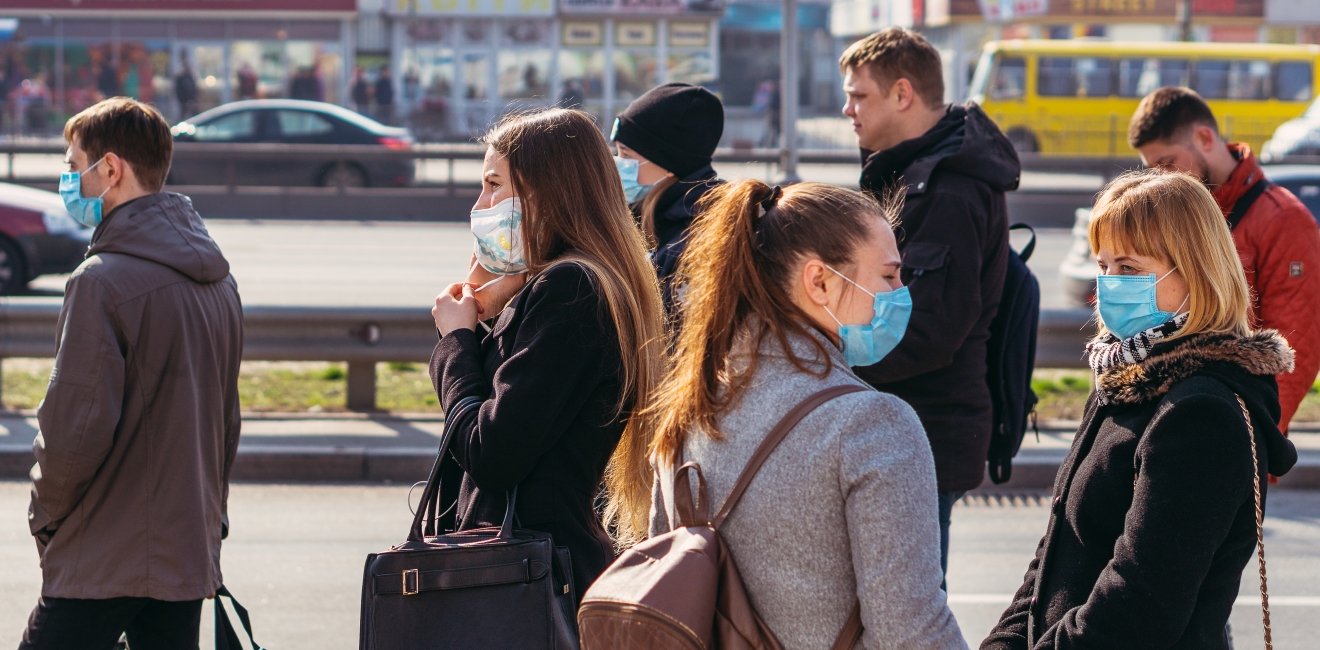
A blog of the Kennan Institute
BY KATERYNA ODARCHENKO
Ukraine is seriously lagging in inoculation against the COVID-19 virus. Despite risks to their health and their family’s health, only one in five Ukrainians have received a full course of COVID-19 vaccine—the lowest rate in Europe. At the same time, the mortality from the infection in Ukraine is unacceptably high. Nor is this situation likely to improve: almost half the country's population does not plan to be vaccinated, sociologists say. On the eve of the current wave of the coronavirus pandemic, in August 2021, pollsters from the Democratic Initiatives Foundation recorded that over 56 percent of the adult population of the country are not planning to be vaccinated in the near future. Another poll shows that 43 percent are opposed to COVID-19 vaccination.
What are the reasons for this vaccine hesitancy—even outright opposition to immunization?
Different Accounts
According to Ukrainian authorities, one of the main reasons is a targeted misinformation campaign by Russia. In this version of affairs, the Kremlin benefits from any factors contributing to the destabilization of Ukraine, including the antivaccination movement. Ukrainians are persuaded through social media and the mass media that vaccines are dangerous, morbidity is growing, and Ukraine’s health care system cannot cope with the influx of patients. The result is deepening discontent and a growing protest mood, believes the National Security and Defense Council of Ukraine.
This official explanation is too simple and only partially true. It is easy to see that professionally tailored information campaigns against vaccination have gained currency in Ukraine. However, the antivaccination movement started fifteen years ago, in the mid-2000s, whereas the COVID-19 epidemic took hold only two years ago. As an indication of the entrenched antivaccination attitude, just 53 percent of Ukrainians are vaccinated against polio, and the same situation obtains with respect to immunization against measles and diphtheria. Thus antivax attitudes are firmly embedded in Ukrainian society. The “foreign influence” factor exists, but it can hardly be the root cause of the Ukrainians’ refusal to vaccinate.
Other explanations have been proposed. According to a Democratic Initiatives Foundation poll, almost 44 percent of the respondents refused vaccination against COVID-19 because they were afraid of the vaccine’s side effects and complications. More than 50 percent believed that vaccines are insufficiently tested. This vax-phobia of Ukrainians has a prehistory.
During the 2010–2013 routine vaccination campaign, there were many cases of complications among children, which were well reported in the mass media. It subsequently turned out that serious protocol violations had occurred in storing and administering the vaccine. The authorities at the time either kept silent about the resulting injuries or actively covered up the incidents. The start of widespread distrust in the public health care system and the growing refusal of any vaccination can be traced to this episode.
Concerns about the unreliability of imported vaccines are also increasing during the current coronavirus pandemic. The lack of arms in which to inject the vaccine led the Ministry of Health in early November to destroy 500,000 doses of the AstraZeneca vaccine that had not been used by the expiration date. The antivaxers took to their social networks to cite that unfortunate development as proof of their hypothesis that Ukraine was getting only expired or low-quality vaccines..
Finally, the Ukrainian power elites and many social leaders have been unwilling to get vaccinated or to support the pro-vaccination campaign. Even President Volodymyr Zelensky, who had himself publicly vaccinated, only recently supported the mass vaccination campaign by asking his compatriots to “turn the brain on.” Instead, a black market in fake COVID certificates has taken off.
In my opinion, this speaks more to the real root cause of Ukrainians' high rate of refusal of vaccination—distrust. Ukrainians greatly distrust the authorities, who should be engaged in protecting people from the consequences of epidemics. But according to the Razumkov Center, 44 percent of survey respondents do not believe official data on the incidence of coronavirus infection. Simultaneously, more than 42 percent of respondents are sure that the authorities are unable to control the epidemic. These somewhat conflicting beliefs speak to basic Ukrainian distrust in the government.
A Crisis of State Authority
The COVID-19 epidemic has thus exposed the real institutional crisis of state authority in Ukraine. State authorities have proved unable to predict the course and consequences of the coronavirus crisis, and unable to procure vaccines, medicines, oxygen (for therapy), and equipment on time and in the right volume. They have also failed to develop and implement a vaccine information strategy that would call for common action and solidarity between government and citizens in the face of the pandemic.
Accordingly, vaccination-related distrust has transformed into a biopolitical form of distrust: the Ukrainian authorities seem to have seriously undermined citizens’ confidence in governmental competence. According to a recent poll, 65 percent of the population are not satisfied with the work of President Zelensky, 72 percent are dissatisfied with the activities of the president's office, 80 percent are dissatisfied with the Cabinet of Ministers, and 83 percent are dissatisfied with parliament. Therefore, until trust is rebuilt at least to 2019 levels, whatever sensible initiative the government might offer won’t be trusted by the majority of citizens.
I draw two conclusions from all this. First, the consequences of the COVID-19 pandemic will be felt by Ukrainians for a long time to come, and herd immunity will develop unforgivingly slowly. Second, public health issues will remain stubbornly in place for Ukraine after the end of the coronavirus pandemic: the low level of vaccination against more traditional infections such as tuberculosis or diphtheria can cause new outbreaks of these diseases.
Trust and solidarity need to be restored. These two factors influence both the quality of politics and the life span of citizens.
The opinions expressed in this article are those solely of the authors and do not reflect the views of the Kennan Institute.
Author


Kennan Institute
After more than 50 years as a vital part of the Wilson Center legacy, the Kennan Institute has become an independent think tank. You can find the current website for the Kennan Institute at kennaninstitute.org. Please look for future announcements about partnership activities between the Wilson Center and the Kennan Institute at Wilson Center Press Room. The Kennan Institute is the premier US center for advanced research on Eurasia and the oldest and largest regional program at the Woodrow Wilson International Center for Scholars. The Kennan Institute is committed to improving American understanding of Russia, Ukraine, Central Asia, the South Caucasus, and the surrounding region through research and exchange. Read more

Explore More in Focus Ukraine
Browse Focus Ukraine
Talking to the Dead to Heal the Living

Ukrainian Issue in Polish Elections


